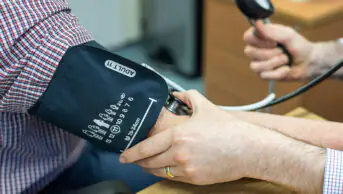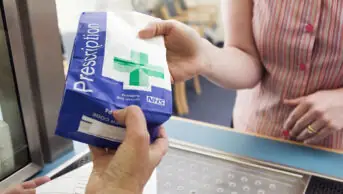
Wes Mountain/The Pharmaceutical Journal
The oft-mentioned, and much anticipated, date from which pharmacists will become independent prescribers (IPs) at the point of registration is less than three years away. And, without question, the profession has its work cut out to get there.
When the General Pharmaceutical Council’s (GPhC’s) initial education and training standard reforms were published in January 2021, they were heralded as a “once-in-a-generation” game changer for the profession. As automatic IPs, the pharmacists of 2026 and beyond are expected to “take on new and extended clinical roles and meet the needs of the public and the NHS”.
While still in their early years now, by 2026, these clinical roles will not be hard to find. Wales and Scotland have both been running independent prescribing services in community pharmacies since 2020, and both countries have seen recent growth in the number of pharmacies offering the services.
A comparable independent prescribing service in England is in the pipeline, with up to 210 community pharmacies expected to pilot such a service later in 2023. There is also a broad range of clinical expertise already being offered by pharmacist IPs in general practice and in secondary care, as The Pharmaceutical Journal highlighted in 2022, with some managing complex skin conditions and others weaning patients off opioids.
The success of these services depends on pharmacists feeling supported to actively use their independent prescribing qualification to provide them
But the success of these services depends on pharmacists feeling supported to actively use their IP qualification to provide them. Responding to The Pharmaceutical Journal’s salary and job satisfaction survey for 2023, nearly a fifth (17%) of pharmacist IPs cited a ‘lack of confidence’ as the reason why they do not use their qualification.
Until recently, the GPhC required pharmacists to have two years of professional experience before becoming an IP. If a fifth of pharmacists with an IP qualification lack the confidence to use it under these circumstances, what support is there for a new pharmacist to use theirs?
That was the question posed to a roundtable of leaders in pharmacy education at an event hosted by The Pharmaceutical Journal, on behalf of the Royal Pharmaceutical Society (RPS), in July 2023. The answer is: it depends on who you ask.
At the roundtable event, representatives from across Great Britain, and from hospital, general practice and community pharmacy, discussed the support offered locally to pharmacist IPs. In Scotland, for example, community pharmacies have set up a ‘teach and treat’ model that uses experienced prescribers to guide others, who have not used their IP qualification, to help them gain confidence in prescribing.
Meanwhile, in south-east London, the integrated care system (ICS) is developing the use of multidisciplinary teams in primary and secondary care as a way of building prescribing confidence to “help emancipate and empower these novice prescribers”, as William Swain, prescribing integration project lead at South East London ICS, said during the roundtable discussion.
While the RPS will have a vital role to play in policy development and facilitating communication across borders and sectors, the onus is as much on local NHS systems to share best practice for supporting this cohort of pharmacists. This will be particularly important in England, where the community pharmacy independent prescribing service is likely to look different in each ICS.
Without widespread and joined-up support, new pharmacists risk falling through the cracks. As Kathryn Hodgson, associate dean at Health Education and Improvement Wales, said at the roundtable event: “Unless we get the initial education and training standards right to give them confidence, we’re at risk of them not using the qualification.”
There is an abundance of research and case studies showcasing the benefits of pharmacist independent prescribing for patients — and the NHS as a whole — that illustrate why this would be a significant missed opportunity.
Ensuring that work to support pharmacists from 2026 is collaborative across sectors and nations is as imperative as building the independent prescribing services themselves. PJ


